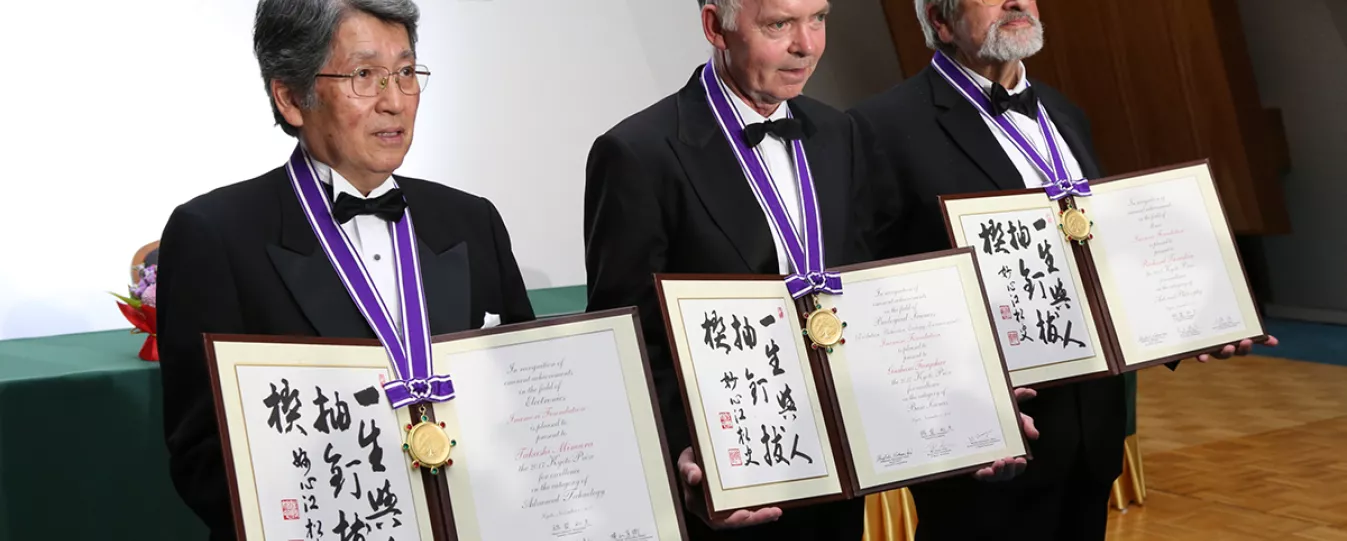Semiconductor engineer Takashi Mimura (Advanced Technology), plant physiologist Graham Farquhar (Basic Sciences), and musicologist Richard Taruskin (Arts and Philosophy) convened last week in Kyoto, Japan for the 33rd Kyoto Prize events.
During the official presentation ceremony at the Kyoto International Conference Center, the three 2017 Kyoto Prize Laureates were officially awarded the Kyoto Prize and received the diploma and medal in the presence of Hisako, Princess Takamado (honorary president of the Inamori Foundation), Dr Kazuo Inamori and over one thousand guests including representatives from the political, diplomatic, business and cultural sectors, as well as from the academic world.
The following day the three Laureates took the stage for their Commemorative Lectures. The lectures represent an opportunity for the Laureates to talk about their life stories, reflecting on the decisions, challenges and inspirations they found in their paths.
Dr Mimura’s lecture, “My fifty years with transistor”, explored the succession of events that led him to invent the HEMT (high-electron mobility transistor) and how this achievement substantially influenced the progress of information technology.
Understanding how to apply models of photosynthesis to agriculture and ecosystems has been at the heart of Dr Farquhar’s research, leading him not only to have an impact on the development of agricultural sciences, but also to contribute to advance climate change sciences. In his lecture, “The magical mystery tour: from physics and applied mathematics to plant physiology”, he also revealed an unexpected passion for practising ballet – a testimony to the enrichment derived from pursuing different activities.
Dr Taruskin is the first musicologist to receive the Kyoto Prize – previous winners in the field of music have been composers or musicians. He transformed perspectives on music thanks to his devotion to historical research and in his lecture, “All was foreseen, nothing was foreseen”, Taruskin talked about his own career as a balance between strategic choices and fortuitous events.
Calum Miller, Chief Operating Officer and Associate Dean of the Blavatnik School of Government, who was in attendance, said: “I listened with admiration to the recipients of this year’s Kyoto Prize. Each has made breakthroughs in research and charted new paths for their scholarly field that have truly changed society. Each spoke with great humility about the many helping hands that had made this possible and expressed their commitment to inspire the next generation of leaders. I can’t wait to welcome them to the Blavatnik School of Government and for them to share their wisdom with our audience for the Kyoto Prize at Oxford in May 2018.”
Some members of the Kyoto Prize at Oxford team also had the opportunity to attend the Art and Philosophy workshop at Tokyo University of the Arts. Richard Taruskin delivered a lecture about Stravinsky’s Mavra, in which he explained why this opera was considered the Russian composer’s first big flop, followed by an engaging performance of the opera organised by faculty and students.
